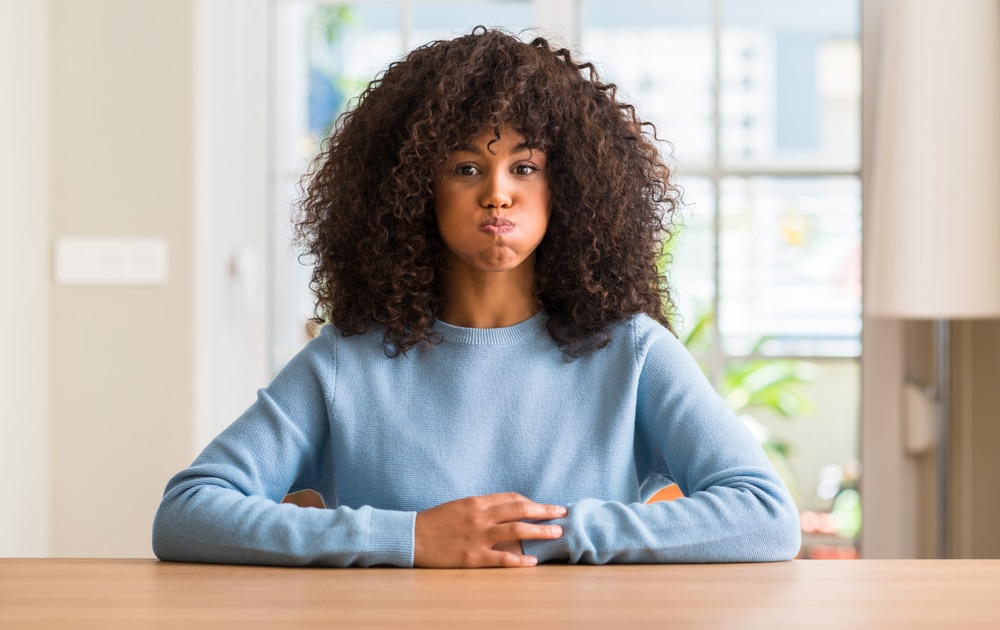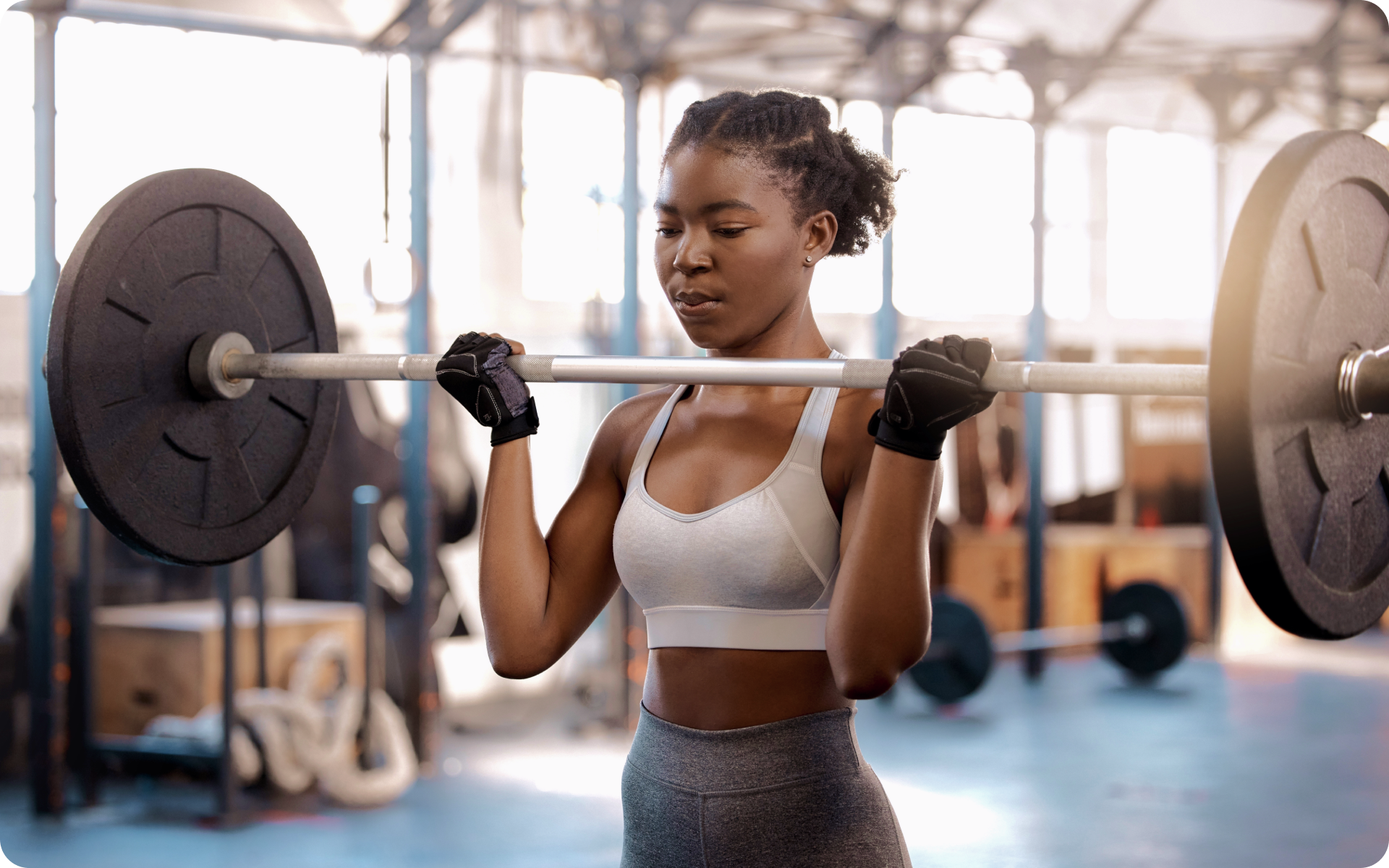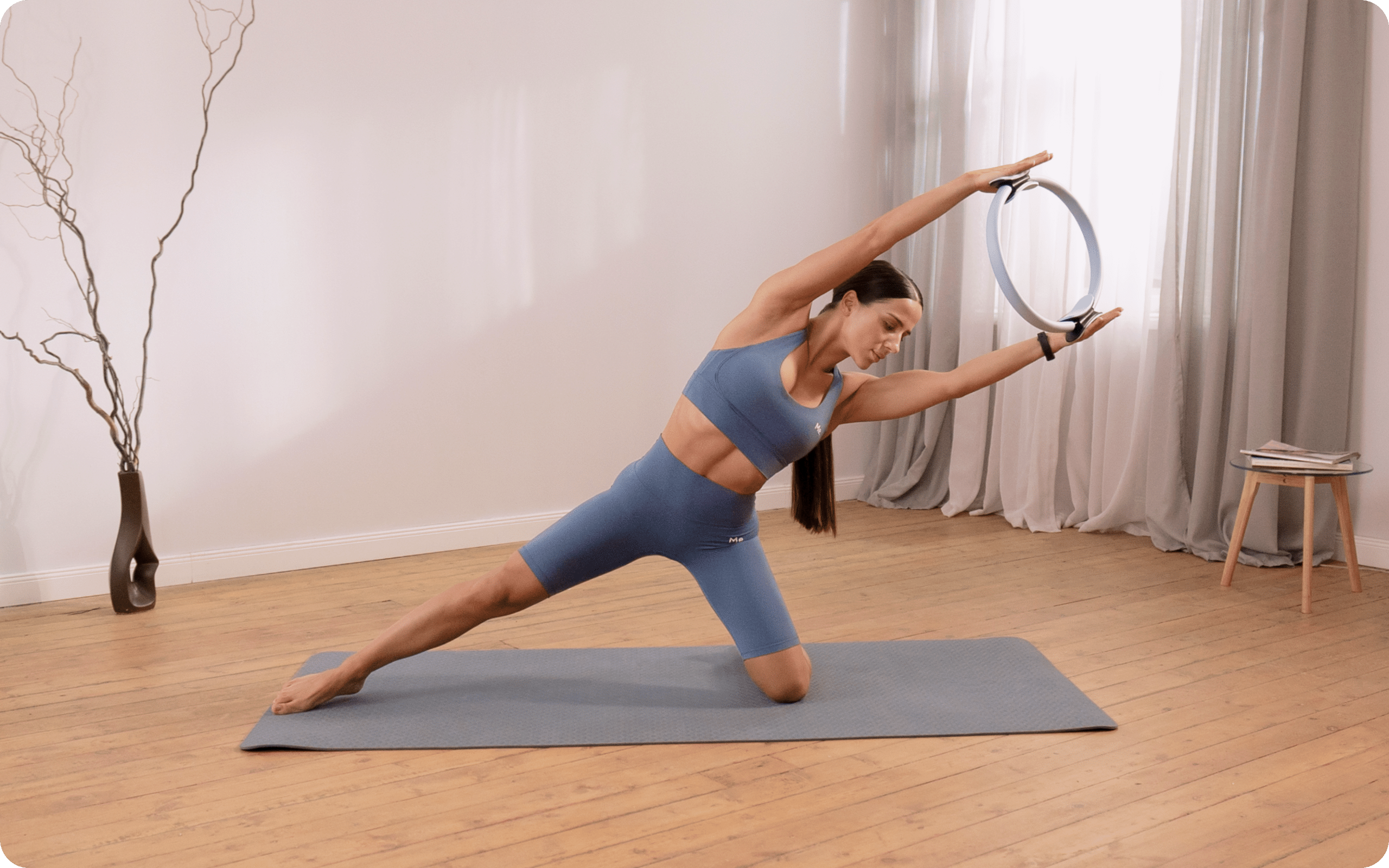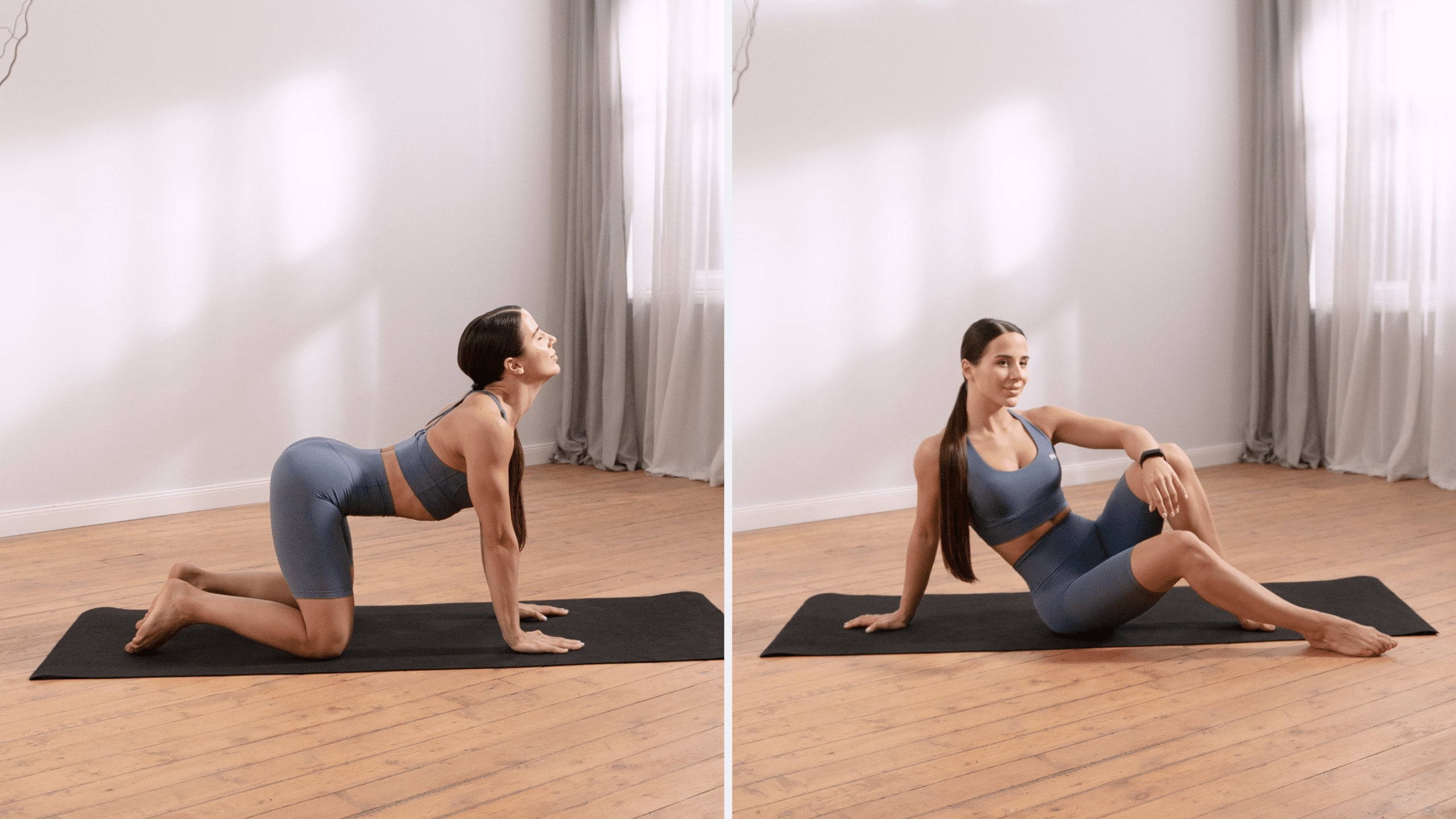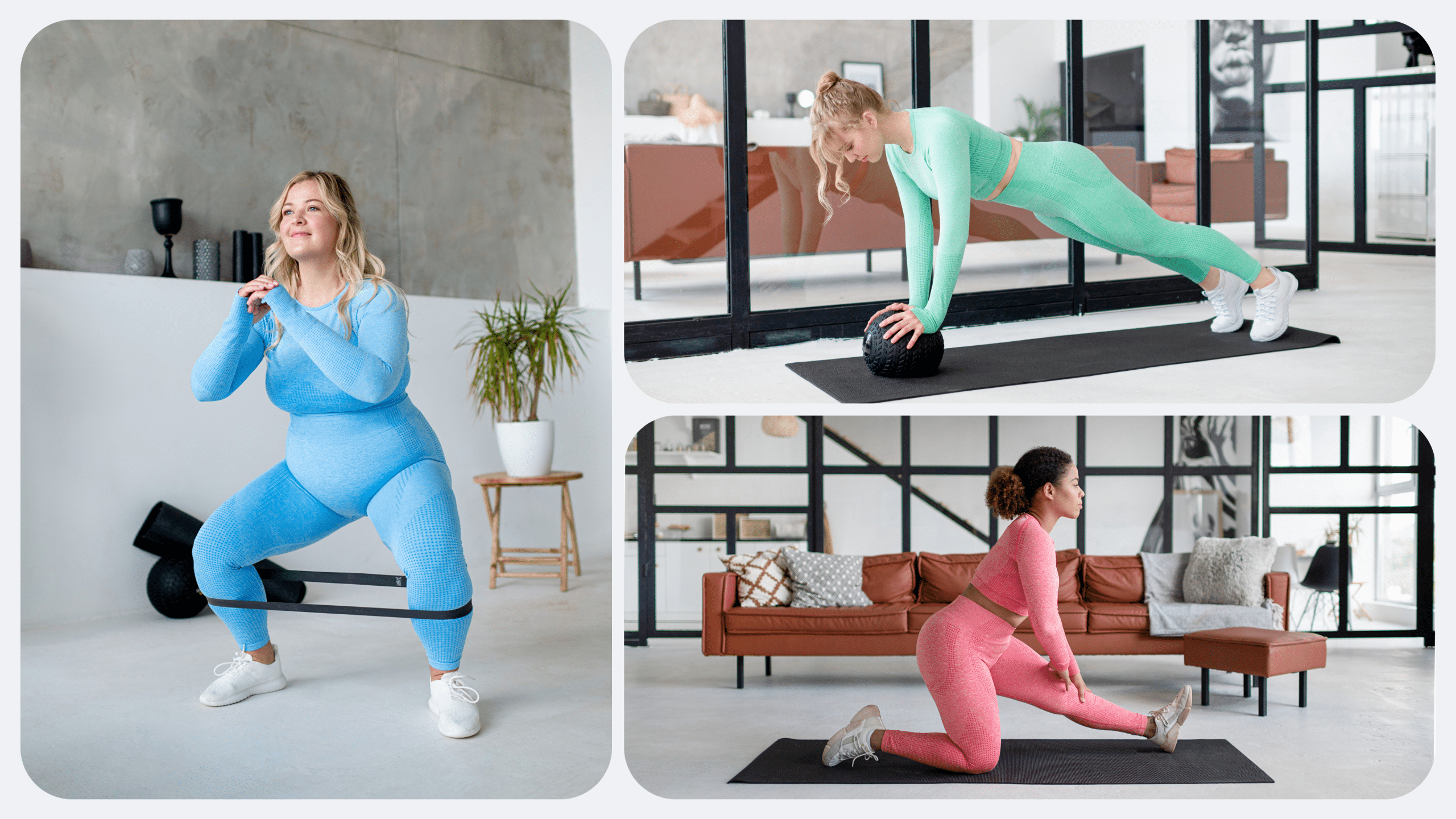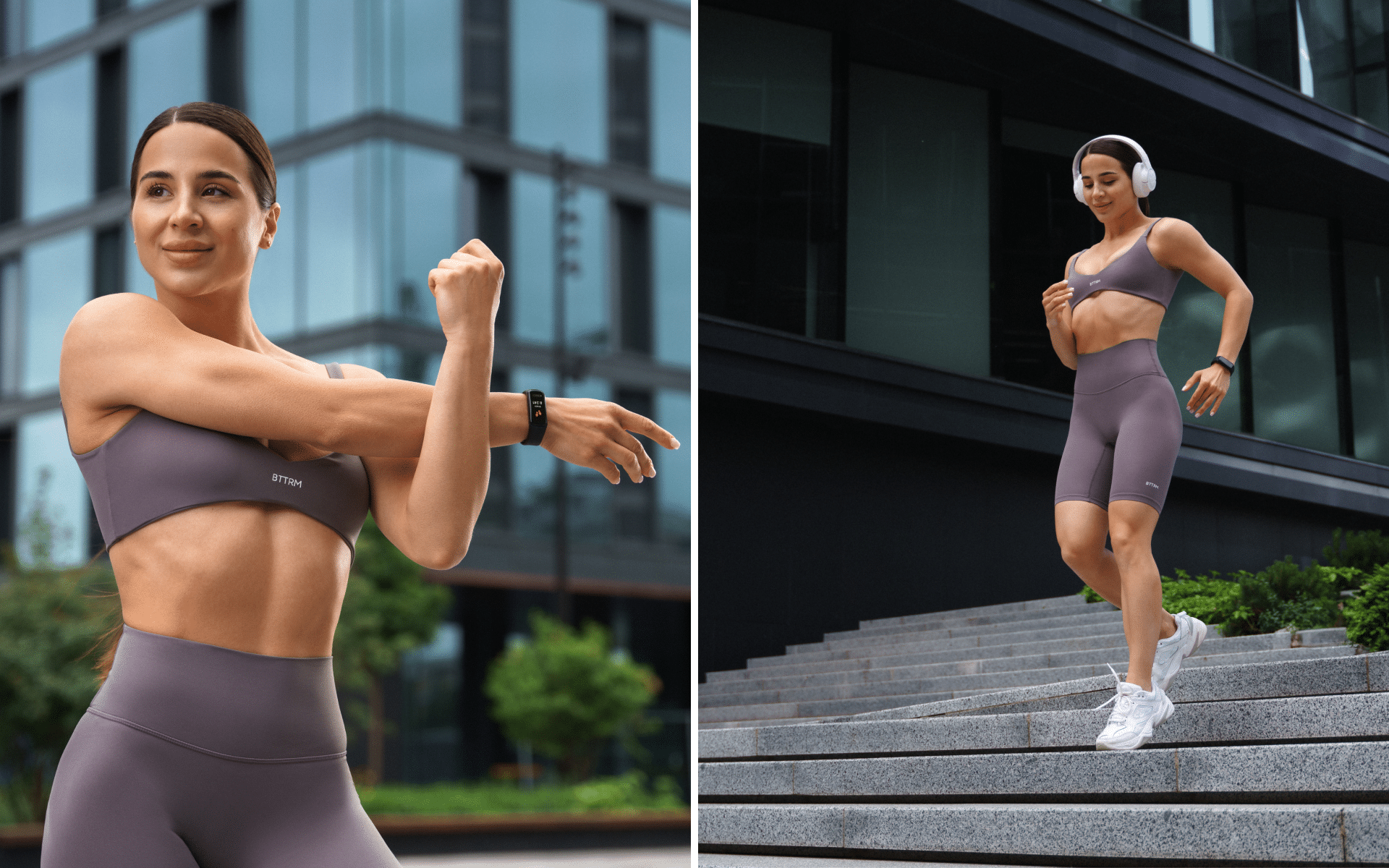A good workout can leave you feeling like a million bucks—you’re high on endorphins, energy is coursing through your veins, and you feel unbeatable. But after a few hours, some of us may find ourselves feeling…less than stellar. A stomach full of gas is enough to make anyone feel crummy. But what’s really causing it? Let’s start with the basics of bloating; it happens when gas (or air) collects in your digestive tract. Expelling gas is a normal part of digestion and usually happens without us noticing. However, when it accumulates, things can get uncomfortable. So what about when it happens after a workout? We know that intense physical activity can put additional strain on our digestive system, but there could be more at play. Here are some of the most common causes for bloating after a workout (and our tips for getting ahead of it).
Is It Normal To Get Bloated After Working Out?
Yes, bloating is a common side effect of working out for many people. While there are lots of possible causes, it’s expected that any physical activity can take a toll on our digestive system. Not to mention that it can be hard to resist the temptation of post-workout snacks which can lead you to feel bloated after a workout.
Even though it’s not the best feeling, it isn’t one you should worry about, especially if it doesn’t last long. If you’re having ongoing, frequent bloating however it’s important to see a doctor in order to get the right diagnosis and treatment.
Why Am I Bloated After A Workout?
There are several potential causes for bloating after a workout. Here are the most common:
You’re Eating Right Before Your Workout
Eating a pre-workout snack is often a good idea, especially if you didn’t have a chance to eat a full meal. However, you should give your food at least an hour or two to digest before heading out for a workout.
Why? When physical activity starts, your body diverts blood away from the digestive system, making it harder to digest food. The process slows down considerably and can cause indigestion or bloating.
You’re Eating The Wrong Foods
Certain foods can be very difficult for your body to digest and can cause excessive gas. If your diet includes high-fiber, fatty, or sugary foods, you may be more likely to experience bloating after a workout.
Eating a pre-workout snack that’s too high in fiber, protein or fat can also put stress on your digestive system, leading to gas and bloating.
You’re Eating Too Much After A Workout
It can be hard to contain your appetite after a workout—we get it. But when you eat more than your body can process, the digestion process slows down and can lead to excessive gas.
You may be familiar with this if you have ever felt stuffed after eating a big meal. Same concept, just after a workout.
Read More: The Top 5 Excellent Benefits Of Sauna After Workout
You’re Eating Too Quickly
It can be tempting to scarf down your post-workout snack ASAP, but that’s a recipe for disaster. Eating too quickly can cause air pockets to form in your digestive tract, which leads to bloating.
Furthermore, eating too quickly can also prevent your body from releasing the hormones that signal when you’re full, which could lead to overeating (2).
You’re Overhydrating
While sweating away toxins and staying hydrated is great for your overall health, overhydrating can actually cause bloating. Drinking too much water in a short-period of time causes sodium levels to drop, which can lead to water retention and bloating.
You’re Drinking The Wrong Beverages
Post-workout hydration is key as part of the recovery process, but it’s important to know that not all beverages are created equal (7).
Some drinks like seltzer or soda contain a lot of carbon dioxide, which can cause bloating. Furthermore, drinks with added sugar or alcohol can also cause bloating by increasing the amount of gas in your stomach.
You’re Sucking In Too Much Air
Your breathing rate increases when you exercise, which is common.
Depending on how intensely you exercised, it’s possible that the increased breathing rate has caused you to swallow more air than normal. This can cause a build-up of gas in your stomach, leading to bloating.
You Pushed Yourself Too Hard
Sometimes, bloating can be a sign that you pushed yourself too hard during your workout.
If the intensity of your exercise was on the higher end, you might experience some inflammation and even bloating while your body repairs itself. Furthermore, intense exercise triggers a system-wide stress response, which can also cause bloating as a side effect.
BetterMe app will kick you out of the mental funk, shake off your extra weight, rid you off your energy-zapping habits, and help you sculpt the body of your dreams. Intrigued? Hurry up and change your life for the better!
How To Cure A Bloated Belly After Workout
The discomfort of bloating shouldn’t take away from the amazing benefits a workout can bring. Here are some tips to relieve your stomach and get back to feeling your best in no time:
1. Try These Stretches For Bloating And Gas
A post-workout stretch is recommended for many reasons; relieving stomach bloating is one of them. Stretching allows the gas to be released from your muscles, providing you with instant relief. The following poses are great for helping to relieve bloating:
Child’s Pose (Balasana):
This pose helps to compress your abdomen and massage your internal organs. To perform this pose:
- Start by kneeling on the floor
- Sit back onto your heels, and stretch your arms out in front of you.
- Slowly lower your chest and forehead to the floor.
- Hold this pose for as long as you’d like, and slowly come back up when you’re finished.
Knees Hugged To Chest (Apanasana):
Also called the wind-relieving pose, this yoga posture compresses the abdomen to help release gas and reduce bloating. To perform this pose:
- Start by laying on the floor, or a yoga mat
- Bring your knees up to your chest while keeping your back flat against the ground.
- Wrap your arms around your legs, and gently rock back and forth.
- Hold this pose for a few seconds to help reduce bloating.
Seated Forward Bend (Paschimottanasana):
This calming pose is great for relieving stomach bloating. To perform this pose:
- Start by sitting on the floor, legs straight out in front of you.
- Reach your arms up towards the ceiling and press your palms together.
- Slowly hinge forward at the hips, and fold over your legs.
- Hold this pose for as long as you’d like, and come back up when finished.
Cat-Cow Pose (Marjaryasana and Bitilasana):
This yoga pose helps to massage the internal organs and reduce bloating. To perform this pose:
- Start on all fours, arms and legs shoulder-width apart.
- Inhale as you arch your spine and look upwards.
- Exhale as you round your spine, tucking your chin towards your chest.
- Repeat this pose a few times to help reduce stomach bloating.
Read More: How To Workout Legs At Home With Or Without Weights
2. Try An Abdominal Massage
An abdominal massage can help to reduce bloating and alleviate stomach discomfort. To perform an abdominal massage:
- Start by lying on your back on a comfortable surface.
- Gently massage your abdomen in a clockwise motion with both hands.
- Work from the top of your stomach down to your lower abdomen.
- Repeat this gentle massage for a few minutes, until you feel relief from bloating.
3. Drink Herbal Teas
Some herbal teas are known for their ability to reduce bloating. Peppermint tea can help you digest your food more quickly, while chamomile and ginger tea can also help to soothe your stomach.
4. Practice Deep Breathing
Deep breathing helps to relax the body, relieving tension and stress that can also cause bloating. To do this:
- Sit in a comfortable position, or on your yoga mat.
- Close your eyes and take a few deep breaths in through the nose, and out through the mouth.
- Allow your breath to become more and more calm, until you reach a state of relaxation.
Some techniques like belly breathing or pranayama can be helpful as well. For belly breathing, place one hand on your chest and the other on your stomach. As you inhale, allow your stomach to expand, then out as you exhale. The idea is to keep your breath slow and steady.
5. Take A Warm Bath
A warm bath can help to relax your muscles and also reduce bloating. Adding Epsom salts or essential oils can help as well. Ideally, relax in the bath for 15-20 minutes to help reduce any discomfort from bloating.
How To Prevent Bloating After A Workout
For the long term, making a few simple lifestyle changes can help to prevent bloating after a workout.
1. Choose Pre-Workout Snacks And Drinks Carefully
If you eat a big meal before exercising, it can cause gas and bloating. To prevent this, try to eat something small and easily digestible, like a PB&J sandwich, rice cakes, a banana, or yogurt.
To rehydrate, try to avoid carbonated drinks and instead opt for:
- Coconut water – a natural electrolyte-rich drink
- Herbal teas – to prevent bloating and ease digestion
- Water – just plain ol’ H2O can help to keep you hydrated and reduce bloating
2. Time Your Meals
Eating at least an hour to three hours before exercising can help to reduce bloating. This gives your body time to digest the food, and also leaves you with plenty of energy for your workout.
Lean and toned up body isn’t just a far-fetched fantasy. Check out the BetterMe app and watch it propel your weight loss journey into high gear!
3. Eat Mindfully
Mindful eating is simply being aware of what you’re eating and why.
Eating slowly, chewing your food carefully and paying attention to how the food makes you feel can help to improve digestion and prevent bloating (6). You’re likely to pick up on fullness faster and reduce the chances of overeating.
To encourage this way of eating, start by paying more attention to your food and the environment when you’re eating. Try not to multitask while having meals and slow down if you’re eating too quickly.
4. Improve Gut Health
Your gut is home to billions of bacteria, and bloating sometimes signals an imbalance in the gut ecosystem (5). Making certain dietary changes can help to improve gut health and reduce bloating.
Incorporating fermented foods and probiotics can help to create a healthy gut environment (3). Good sources of probiotics include yogurt, kefir, kombucha, miso, and pickles.
Prebiotics are also beneficial for the gut as they act as food for probiotics and help them to thrive (3). Foods like artichokes, asparagus, garlic and onions are all excellent sources of prebiotics.
Supplements like digestive enzymes can also help to improve digestion and reduce bloating (1).
Some lifestyle changes you can make to improve gut health include quitting smoking, getting enough sleep, reducing stress levels and exercising regularly (8).
5. Avoid High-FODMAP Foods
FODMAP stands for fermentable oligo-, di-, mono-saccharides and polyols. These are certain types of carbohydrates that can be difficult to digest and can cause bloating (4).
High-FODMAP foods include onions, garlic, apples, pears, mushrooms and honey.
Most people can tolerate these foods in moderation, but if you experience bloating after eating them, it’s best to avoid them.
To find out whether these foods are causing your bloating, you can try eliminating them from your diet for three weeks and then reintroducing them one at a time in small amounts. This can help you to identify which foods are causing your discomfort.
Takeaway
Bloating after a workout is common, but it is possible to prevent and reduce it. Eating smaller meals before exercising, taking a warm bath afterwards and avoiding high-FODMAP foods can help to reduce bloating and improve digestion.
Making mindful eating a part of your lifestyle, drinking plenty of fluids and improving gut health can also be beneficial in preventing bloating.
Remember, everyone’s body is different and responds differently to certain foods and drinks. It’s important to find what works best for you.
DISCLAIMER:
This article is intended for general informational purposes only and does not serve to address individual circumstances. It is not a substitute for professional advice or help and should not be relied on for making any kind of decision-making. Any action taken as a direct or indirect result of the information in this article is entirely at your own risk and is your sole responsibility.
BetterMe, its content staff, and its medical advisors accept no responsibility for inaccuracies, errors, misstatements, inconsistencies, or omissions and specifically disclaim any liability, loss or risk, personal, professional or otherwise, which may be incurred as a consequence, directly or indirectly, of the use and/or application of any content.
You should always seek the advice of your physician or other qualified health provider with any questions you may have regarding a medical condition or your specific situation. Never disregard professional medical advice or delay seeking it because of BetterMe content. If you suspect or think you may have a medical emergency, call your doctor.
SOURCES:
- Can the supplementation of a digestive enzyme complex offer a solution for common digestive problems? (2014, biomedcentral.com)
- Eating Slowly Increases the Postprandial Response of the Anorexigenic Gut Hormones, Peptide YY and Glucagon-Like Peptide-1 (2010, academic.oup.com)
- Effects of Probiotics, Prebiotics, and Synbiotics on Human Health (2017, mdpi.com)
- Evaluation of FODMAP Carbohydrates Content in Selected Foods in the United States (2019, ncbi.nlm.nih.gov)
- Gut Bacteria in Health and Disease (2013, ncbi.nlm.nih.gov)
- Mindful Eating: The Art of Presence While You Eat (2017, ncbi.nlm.nih.gov)
- Role of Functional Beverages on Sport Performance and Recovery (2018, mdpi.com)
- The Impact of Diet and Lifestyle on Gut Microbiota and Human Health (2014, mdpi.com)
